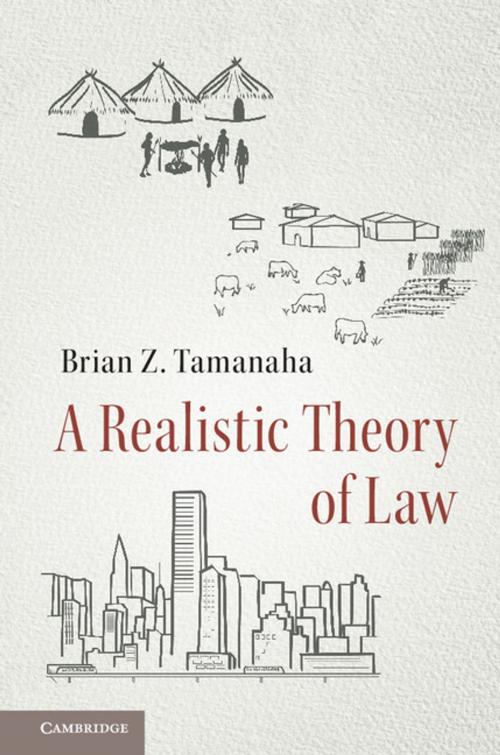| Author: | Brian Z. Tamanaha | ISBN: | 9781316990766 |
| Publisher: | Cambridge University Press | Publication: | April 24, 2017 |
| Imprint: | Cambridge University Press | Language: | English |
| Author: | Brian Z. Tamanaha |
| ISBN: | 9781316990766 |
| Publisher: | Cambridge University Press |
| Publication: | April 24, 2017 |
| Imprint: | Cambridge University Press |
| Language: | English |
This book articulates an empirically grounded theory of law applicable throughout history and across different societies. Unlike natural law theory or analytical jurisprudence, which are narrow, abstract, ahistorical, and detached from society, Tamanaha's theory presents a holistic vision of law within society, evolving in connection with social, cultural, economic, political, ecological, and technological factors. He revives a largely forgotten theoretical perspective on law that runs from Montesquieu through the legal realists to the present. This book explains why the classic question 'what is law?' has never been resolved, and casts doubt on theorists' claims about necessary and universal truths about law. This book develops a theory of law as a social institution with varying forms and functions, tracing law from hunter-gatherer societies to the modern state and beyond. Tamanaha's theory accounts for social influences on law, legal influences on society, law and domination, multifunctional governmental uses of law, legal pluralism, international law, and other legal aspects largely overlooked in jurisprudence.
This book articulates an empirically grounded theory of law applicable throughout history and across different societies. Unlike natural law theory or analytical jurisprudence, which are narrow, abstract, ahistorical, and detached from society, Tamanaha's theory presents a holistic vision of law within society, evolving in connection with social, cultural, economic, political, ecological, and technological factors. He revives a largely forgotten theoretical perspective on law that runs from Montesquieu through the legal realists to the present. This book explains why the classic question 'what is law?' has never been resolved, and casts doubt on theorists' claims about necessary and universal truths about law. This book develops a theory of law as a social institution with varying forms and functions, tracing law from hunter-gatherer societies to the modern state and beyond. Tamanaha's theory accounts for social influences on law, legal influences on society, law and domination, multifunctional governmental uses of law, legal pluralism, international law, and other legal aspects largely overlooked in jurisprudence.















